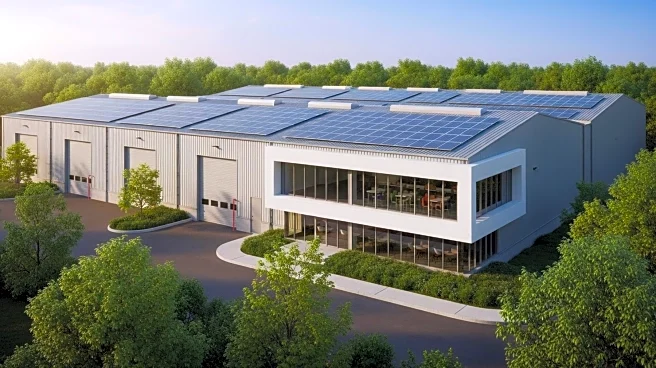What's Happening?
Schneider Electric's distribution center in Evreux, France, has been named a Sustainability Lighthouse by the World Economic Forum's Global Lighthouse Network. This recognition highlights the center's commitment to circularity and resource efficiency, having reduced energy consumption by 18% and single-use plastic by 40% over two years. The site employs innovative solutions such as a digital platform for product take-back and a data model linking products to repair centers. This marks Schneider Electric's sixth such designation, reinforcing its leadership in sustainable industrial transformation.
Why It's Important?
The recognition of Schneider Electric's Evreux site underscores the growing importance of sustainable practices in global supply chains. As industries face increasing pressure to reduce their environmental impact, Schneider's achievements serve as a model for integrating circular economy principles into operations. This could influence other companies to adopt similar practices, potentially leading to widespread improvements in resource efficiency and waste reduction. The focus on sustainability also aligns with consumer demand for environmentally responsible products, offering competitive advantages to companies that prioritize green initiatives.
What's Next?
Schneider Electric is likely to continue expanding its sustainability efforts, potentially influencing industry standards and encouraging other companies to follow suit. The Global Lighthouse Network's recognition may prompt further collaboration and knowledge sharing among leading industrial sites, accelerating the adoption of sustainable practices. As more companies strive to meet net-zero goals, innovations in circular economy models and energy management systems could become increasingly prevalent.
Beyond the Headlines
The designation highlights the role of digital innovation in achieving sustainability goals, emphasizing the potential of technology to drive resource efficiency. It also reflects a broader shift towards sustainable manufacturing, with implications for workforce development and supply chain resilience. As companies integrate sustainability into their core operations, they may face challenges in balancing economic performance with environmental responsibility, necessitating strategic investments in technology and talent.










